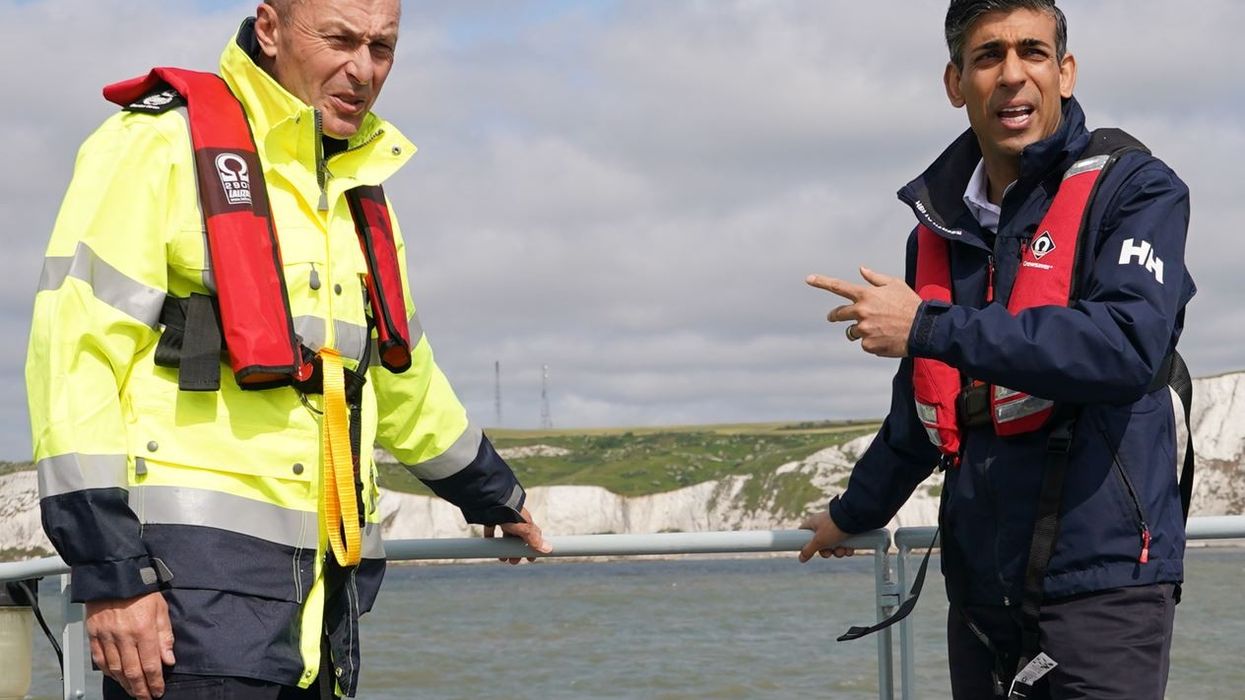THE Conservative party’s controversial immigration policy could ultimately be the reason they lose power at the next general election, a group of leading academics have predicted.
Plans to stop thousands of migrants landing on British shores in small boats were last month approved by the House of Lords. The bill – which will mean anyone arriving by boat illegally will be refused the right to apply for asylum in the UK – will now become law following the formality of royal assent.

The legislation includes measures to transfer all irregular arrivals to “safe” third countries such as Rwanda to provide a deterrent against illegal migration.
However, despite his strong stance on immigration, prime minister Rishi Sunak trails his Labour rival, Sir Keir Starmer, in voting intention polls.
Data from Ipsos revealed that if a general election was to be held tomorrow, 45 per cent of the UK public would chose Labour, while the Tories would secure 28 per cent of the vote.
“If you look at 2019 Conservative voters, over the past year, they’ve become very concerned about immigration,” said Rob Ford, professor of political science at the University of Manchester.
“So, if your strategy as Rishi Sunak is ‘let’s put a firm floor on the Conservatives vote, let’s make sure it doesn’t really collapse’, then a really hardline stance on immigration, in theory, make sense in terms of ticking those boxes.”
He was speaking in a panel discussion last Wednesday (26) on the July by-elections results, hosted by the UK in a Changing Europe (UKICE) group.
Ford added, “However, this is basically giving up on the idea of competing for many of the swing voters that you’re losing to Labour, because very few of them are now saying immigration is a top issue.
“Also, they don’t think the Conservative policies are any good on immigration.
“Even when they are pro-immigration control or pro-stop the boats, they think the policies designed to do those things will be expensive failures.
“You’re essentially flagging up something either people don’t care about – and when it comes to swing voters, they think the policies are bad – so I don’t really think it will work with them.”
Stopping small boats was one of Sunak’s five key pledges he unveiled at the beginning of the year.
More than 45,000 migrants arrived on the shores of southeast England on small boats in 2022 – a 60-per cent annual increase on a route used by more people every year since 2018.
Sophie Stowers, a researcher at UKICE, said stopping the small boats was one aspect of immigration that could be a “vote winner”. But with the general election due next year, she felt there wasn’t enough time for the Tories to make significant steps to ad[1]dress the issue.

“We’ve seen immigration, which dropped out of the top 10 priority issues for voters, slowly creep back in to third or fourth place on the YouGov tracker, which is the highest it’s been for a long time,” said Stowers.
“Making inroads with voters who find this a priority is dependent on taking action. They (Tories) have got a year and-ahalf until the election and it’s very unlikely any sort of tangible difference is going to be made.
“You are sort of setting a rock on your own back if you actually stand on a podium and put this as one of your five pledges – but can’t then actually do anything to tackle that issue. You’re very much just reinforcing the public’s attitude to successive governments on this issue, which is just one of incompetence.”
Research shows that economic instability is a key issue that long-term Tory voters are most worried about, said Paula Surridge, professor of political sociology at the University of Bristol.
Millions of households across Britain are under sustained pressure from soaring prices for groceries, energy and other basic essentials, as well as an increase in rent and mortgage costs. The ONS [Office for National Statistics]said one in 20 households had run out of food in the past and had not been able to afford to buy more. Surridge said, “The biggest group at the moment among the Conservatives are not the Conservatives to Labour switches. They’re not the Conservative to Reform UK switches. They’re the Conservatives who don’t know what they’re going to do next time, who make up almost a quarter of 2019 Conservative voters.

“I’d say the core strategy for either side (Labour and Tory) at the moment is to find out who those voters are and what they want. I tried to do that with some of the election study data and the most important issue for 70 per cent of this group is the economy.
“On economic issues and values, they are well to the left, those staying with the Conservative party. You can move around to the other dimension and try and have a culture war and bring immigration into play, but when people’s concerns are economic, and they’re not aligned with you on economic values, it’s not going to help you because you’re not talking to people about the things they really care about and that are really important to their lives at the moment.”
Ford predicted a general election defeat would signal the end of Sunak as not only prime minister, but also as the leader of the Tory party.
“It’s hard to imagine that he would stay on if it’s a heavy defeat,” said Ford.
“If there’s a leadership contest, when you look at how the MPs behaved in the last leadership contest, it’s very likely we get one candidate, maybe two candidates on the right of the party.
“If you look at the kinds of people manoeuvring themselves for that contest, Kemi Badenoch, Suella Braverman and so on, it would be consistent with that.”












